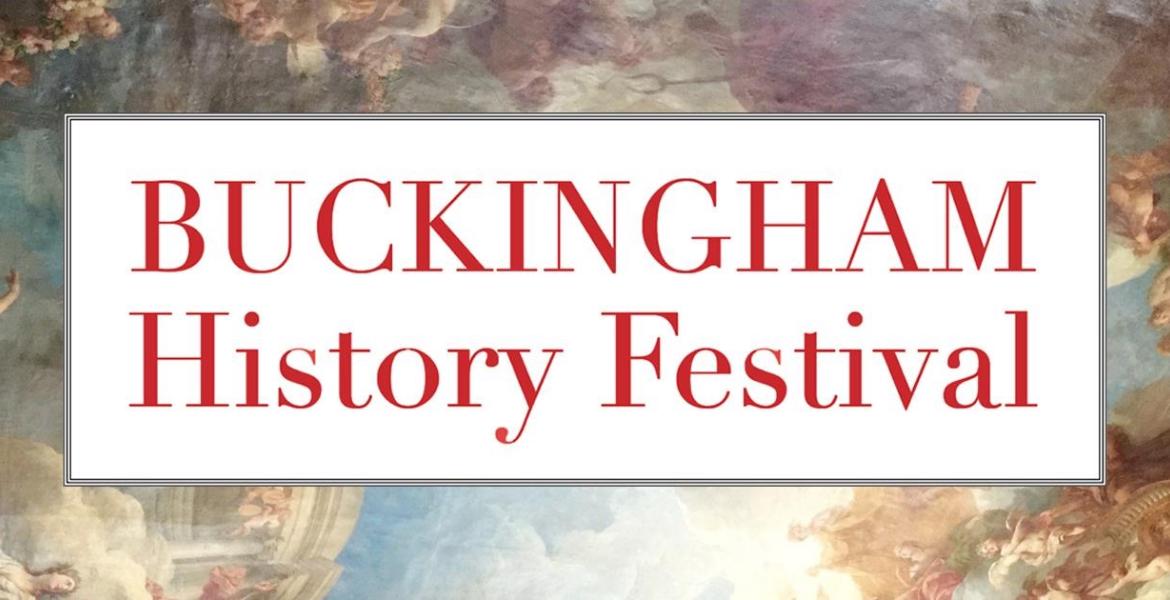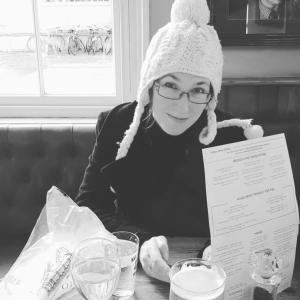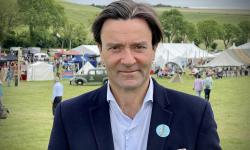From Small Acorns: Buckingham History Festival 2023
Buckingham is a pretty market town nestled close to the Buckinghamshire/Northamptonshire/Oxfordshire borders. Small in size for a former county town - despite the recent urban sprawl - it nevertheless has a big past. From unusual second-century Roman barrows, Royal Mints and submission of Danes, through to executed and murdered dukes (different iterations), raging fires and Civil War sieges, the town and its surroundings have seen a lot. It is only fitting, therefore, that this unassuming town is establishing a first-rate history festival.
Centred around the University of Buckingham - one of the UK's smallest, and privately funded, universities - the festival hit the ground running in 2019 and, despite the hiatus caused by lockdowns, has grown in size and range since. This year it will be featuring 23 different historians and specialists across three days, from 15 to 17 September. Although it is 'entirely free of people in period costume, battle re-enactments, and morris dancers', it still offers a great range of speakers, new historical discoveries, and exciting ideas. With a slight early-modern slant this year (hardly surprising given that the director, Paul Lay, is former History Today editor and author of ProvidenceGod or another spiritual entity's protective care and direction. Lost, a study of Oliver Cromwell's ProtectorateThe position or period of office of a Protector, especially that of Oliver and Richard Cromwell in England.), there is still plenty to inspire and interest across the board, from David Butterfield's talk on 'Why We Need the Classics' to a panel discussion on 'The State of History Today'. Lovers of art and culture are well catered for, with Christina Faraday exploring the vivid visual and material worlds of the Tudor and Stuart period, while Laura Cumming, chief art critic at the Observer, considers the impact of art on the mind and the heart through the lens of the Dutch Golden Age. As with all such festivals, there's enough to satisfy twentieth-century enthusiasts, with Iain MacGregor on Stalingrad and Julian Jackson, the leading authority on modern French history, investigating the trial and legacy of Marshal Pétain. There is also plenty of room for challenge and controversy, with distinguished moral philosopher and theologianA person who engages, or is an expert, in theology (the study of faith). Nigel Biggar arguing for a revision of some conclusions on imperialism with his talk, 'The Morality of Empire and the War on Woke'.
To help you make the most of this great festival, here are our top picks for this weekend.
The Restless Republic
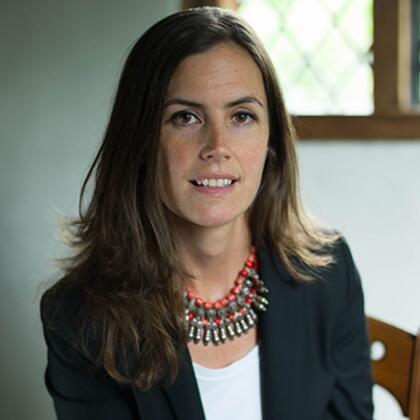 A great speaker at this year's Chalke Valley History Festival, Anna Keay examines the years 1649-1660 - possibly the strangest and most dramatic period in the history of Britain and Ireland - through the eyes of those caught up in the turmoil. From the famous to the not-so-famous, rich to poor, laundry women to Oliver Cromwell, the Lord Protector himself, the individual threads of these people's lives are drawn together to create a rich social tapestry of an extraordinary time.
A great speaker at this year's Chalke Valley History Festival, Anna Keay examines the years 1649-1660 - possibly the strangest and most dramatic period in the history of Britain and Ireland - through the eyes of those caught up in the turmoil. From the famous to the not-so-famous, rich to poor, laundry women to Oliver Cromwell, the Lord Protector himself, the individual threads of these people's lives are drawn together to create a rich social tapestry of an extraordinary time.
Anna Keay will be discussing this fascinating period on Friday 15 September at 2pm.
Victory to Defeat: The Rise and Fall of the British Army, 1918-1940
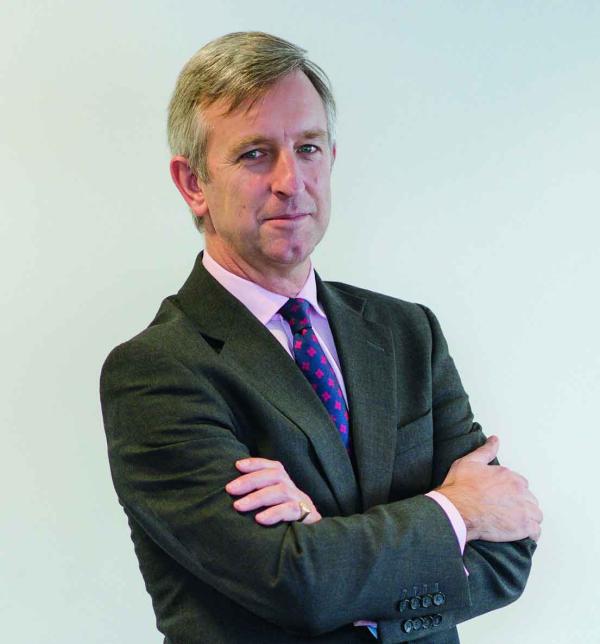 Robert Lyman is a firm favourite of ours and has been busy on the festival circuit this year. This time, he will be speaking about his new book, written in conjunction with General Lord Richard Dannatt, Victory to Defeat. Through a study of the British Army, from victory at the end of the First World War to crushing defeat and evacuation from Dunkirk in 1940, Robert Lyman offers a captivating history of the mismanagement of a victorious army, which also serves as a warning of what happens when we fail to understand the nature of our enemies and who they might be.
Robert Lyman is a firm favourite of ours and has been busy on the festival circuit this year. This time, he will be speaking about his new book, written in conjunction with General Lord Richard Dannatt, Victory to Defeat. Through a study of the British Army, from victory at the end of the First World War to crushing defeat and evacuation from Dunkirk in 1940, Robert Lyman offers a captivating history of the mismanagement of a victorious army, which also serves as a warning of what happens when we fail to understand the nature of our enemies and who they might be.
Robert Lyman will be speaking on Friday 15 September at 5pm.
Appeasement Reassessed: Hitler, Chamberlain, and the Road to the Second World WarA global war that lasted from 1939 until 1945.
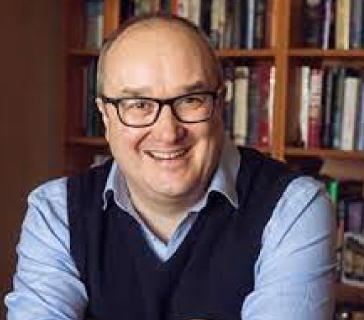
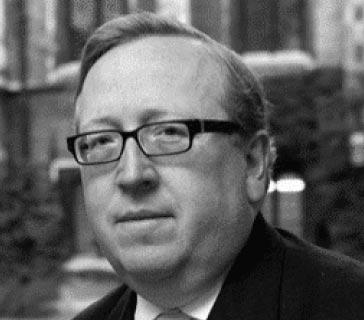 Dominic Sandbrook is a phenomenally successful historian of twentieth-century Britain and a best-selling author, as well as being co-presenter of The Rest Is History, the world’s most listened-to history podcast. In this talk he will be in conversation with Simon Heffer, author of the soon-to-be-released Sing as We Go: Britain between the Wars, about Britain's approach to the appeasement of Nazi Germany and Heffer's controversial reappraisal of the man most tied to Britain's policy, Neville Chamberlain.
Dominic Sandbrook is a phenomenally successful historian of twentieth-century Britain and a best-selling author, as well as being co-presenter of The Rest Is History, the world’s most listened-to history podcast. In this talk he will be in conversation with Simon Heffer, author of the soon-to-be-released Sing as We Go: Britain between the Wars, about Britain's approach to the appeasement of Nazi Germany and Heffer's controversial reappraisal of the man most tied to Britain's policy, Neville Chamberlain.
Dominic Sandbrook and Simon Heffer will be in conversation on Friday 15 September at 6.30pm.
The Revolutionary Life of Margaret Cavendish
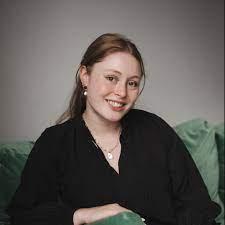 Francesca Peacock is one of the UK's brightest young literary talents, regularly writing columns for the Daily Telegraph, the Financial Times, the TLS, and the Spectator. The release of her debut book, a biography of the remarkable Duchess of Newcastle upon Tyne, Margaret Cavenish, coincides with the Buckingham History Festival, and is the subject of her talk. A truly extraordinary woman, who suffered periods in exile, battled with the Cromwellian regime, and married her love - who was 30 years her senior - despite the disapproval of the monarchyThe king/queen and royal family of a country, or a form of government with a king/queen at the head., she was also a renowned poet and natural philosopher. In addition to publishing her poetry, plays, essays, and romanticCharacterised by expressions of love; or an idealised way of looking at something; or someone who followed the Romantic artistic movement, that focused on individualism and emotion. prose fiction, she was also a character known for her unusual fashion sense and her opinions on sex, marriage, courtship and gender inequality.
Francesca Peacock is one of the UK's brightest young literary talents, regularly writing columns for the Daily Telegraph, the Financial Times, the TLS, and the Spectator. The release of her debut book, a biography of the remarkable Duchess of Newcastle upon Tyne, Margaret Cavenish, coincides with the Buckingham History Festival, and is the subject of her talk. A truly extraordinary woman, who suffered periods in exile, battled with the Cromwellian regime, and married her love - who was 30 years her senior - despite the disapproval of the monarchyThe king/queen and royal family of a country, or a form of government with a king/queen at the head., she was also a renowned poet and natural philosopher. In addition to publishing her poetry, plays, essays, and romanticCharacterised by expressions of love; or an idealised way of looking at something; or someone who followed the Romantic artistic movement, that focused on individualism and emotion. prose fiction, she was also a character known for her unusual fashion sense and her opinions on sex, marriage, courtship and gender inequality.
Francesca Peacock will be discussing Margaret Cavendish on Saturday 16 September at 10.30am.
How Empires Fall
 Over the last three centuries, the West rose to dominate the planet. Then, suddenly, around the turn of the millennium, history reversed. Faced with economic stagnation and internal political division, the West has found itself in decline. Is the United States, as well as its allies, heading for the same fate as befell Ancient Rome, or can it succeed in a multipolar world in which China has emerged as a major player – and its fiercest rival? Peter Heather, Chair of the Medieval History Department and Professor of Medieval History at King’s College London draws on his expert knowledge of the past to discuss our possible futures.
Over the last three centuries, the West rose to dominate the planet. Then, suddenly, around the turn of the millennium, history reversed. Faced with economic stagnation and internal political division, the West has found itself in decline. Is the United States, as well as its allies, heading for the same fate as befell Ancient Rome, or can it succeed in a multipolar world in which China has emerged as a major player – and its fiercest rival? Peter Heather, Chair of the Medieval History Department and Professor of Medieval History at King’s College London draws on his expert knowledge of the past to discuss our possible futures.
Peter Heather will be talking on Saturday 16 September at midday.
Women in British Intelligence
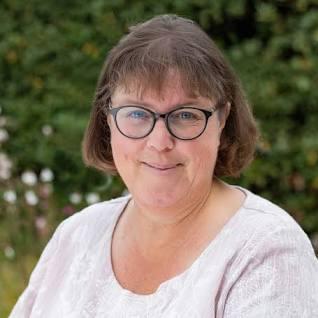 Helen Fry is a prolific historian and specialist on British Intelligence during the Second World War. Another speaker who has been talking to packed-out audiences around the festival circuit this summer, at Buckingham she will be telling the extraordinary stories of women who worked in Intelligence during the First and Second World Wars, both as civilians and in uniform. These were women who ran spy networks and escape lines, worked behind enemy lines, and interrogated prisoners, as well as undertaking the vital administrative work that kept the British war engine running.
Helen Fry is a prolific historian and specialist on British Intelligence during the Second World War. Another speaker who has been talking to packed-out audiences around the festival circuit this summer, at Buckingham she will be telling the extraordinary stories of women who worked in Intelligence during the First and Second World Wars, both as civilians and in uniform. These were women who ran spy networks and escape lines, worked behind enemy lines, and interrogated prisoners, as well as undertaking the vital administrative work that kept the British war engine running.
Helen Fry will be speaking on Saturday 16 September at midday.
The RenaissanceA European revival of learning, art and literature influenced by classical history and culture. It started in Florence, Italy in the 14th century and spread to the rest of Europe in the 14th to 16th centuries. Confronts the Orient: The One-Eyed Pirate and the Humanist Encounter Sixteenth-Century India and China
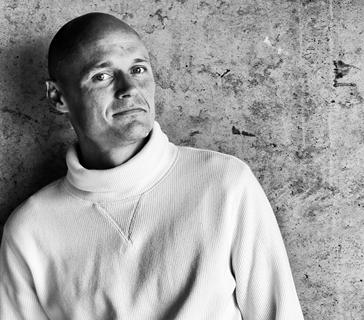 The age of discovery, which saw European navigators traverse the Pacific and Atlantic oceans, transformed the world and made it one. Among the most remarkable stories of this extraordinary period in human history are those of the little-known sixteenth-century Portuguese adventurers Damião de Góis and Luís de Camões, who were met with wonders on their arrival in India and China. Edward Wilson-Lee, who lectures on medieval and early modern literature at Sidney Sussex College, Cambridge, reveals how their experiences and encounters challenged longstanding European beliefs, and how both the church authorities and secularNot connected with religious matters. powers created vast conspiracies to silence the questions that these explorers’ discoveries posed about the nature of history and of human life.
The age of discovery, which saw European navigators traverse the Pacific and Atlantic oceans, transformed the world and made it one. Among the most remarkable stories of this extraordinary period in human history are those of the little-known sixteenth-century Portuguese adventurers Damião de Góis and Luís de Camões, who were met with wonders on their arrival in India and China. Edward Wilson-Lee, who lectures on medieval and early modern literature at Sidney Sussex College, Cambridge, reveals how their experiences and encounters challenged longstanding European beliefs, and how both the church authorities and secularNot connected with religious matters. powers created vast conspiracies to silence the questions that these explorers’ discoveries posed about the nature of history and of human life.
Edward Wilson-Lee will be speaking on Sunday 17 September at 10.30am.
Black British History: This Is Not America
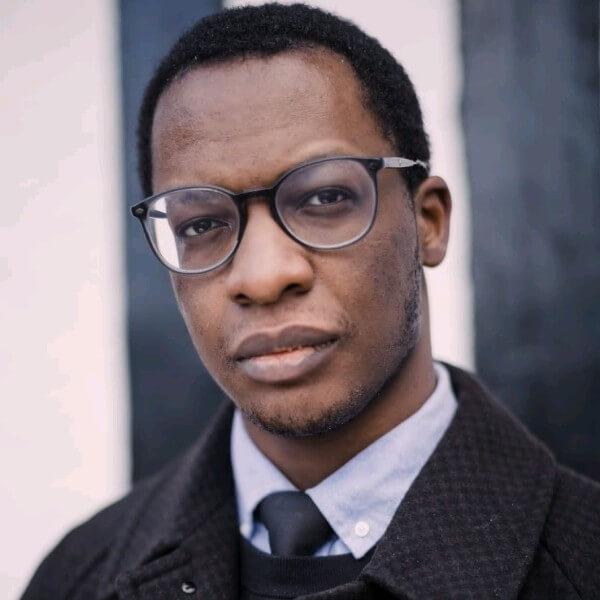 All too often the history of Black Britons, as well as that of other ethnic minorities in the UK, is viewed through the prism of the United States. But, given the poisonous history of race relations in the US, this often creates more heat than light and skewers the very different experiences on either side of the Atlantic. In this thought-provoking talk Tomiwa Owolade, cultural commentator, author and writer for The Times and contributing editor at the New Statesman, argues that Britons should be wary of American cultural dominance and create new, more illuminating narratives based on Britain’s national and global past.
All too often the history of Black Britons, as well as that of other ethnic minorities in the UK, is viewed through the prism of the United States. But, given the poisonous history of race relations in the US, this often creates more heat than light and skewers the very different experiences on either side of the Atlantic. In this thought-provoking talk Tomiwa Owolade, cultural commentator, author and writer for The Times and contributing editor at the New Statesman, argues that Britons should be wary of American cultural dominance and create new, more illuminating narratives based on Britain’s national and global past.
Tomiwa Owolade will be discussing Black British History on Sunday 17 September at 2pm.
To find out more about Buckingham History Festival, and to purchase tickets, visit their website.
All pictures courtesy of Buckingham History Festival.
- Log in to post comments


